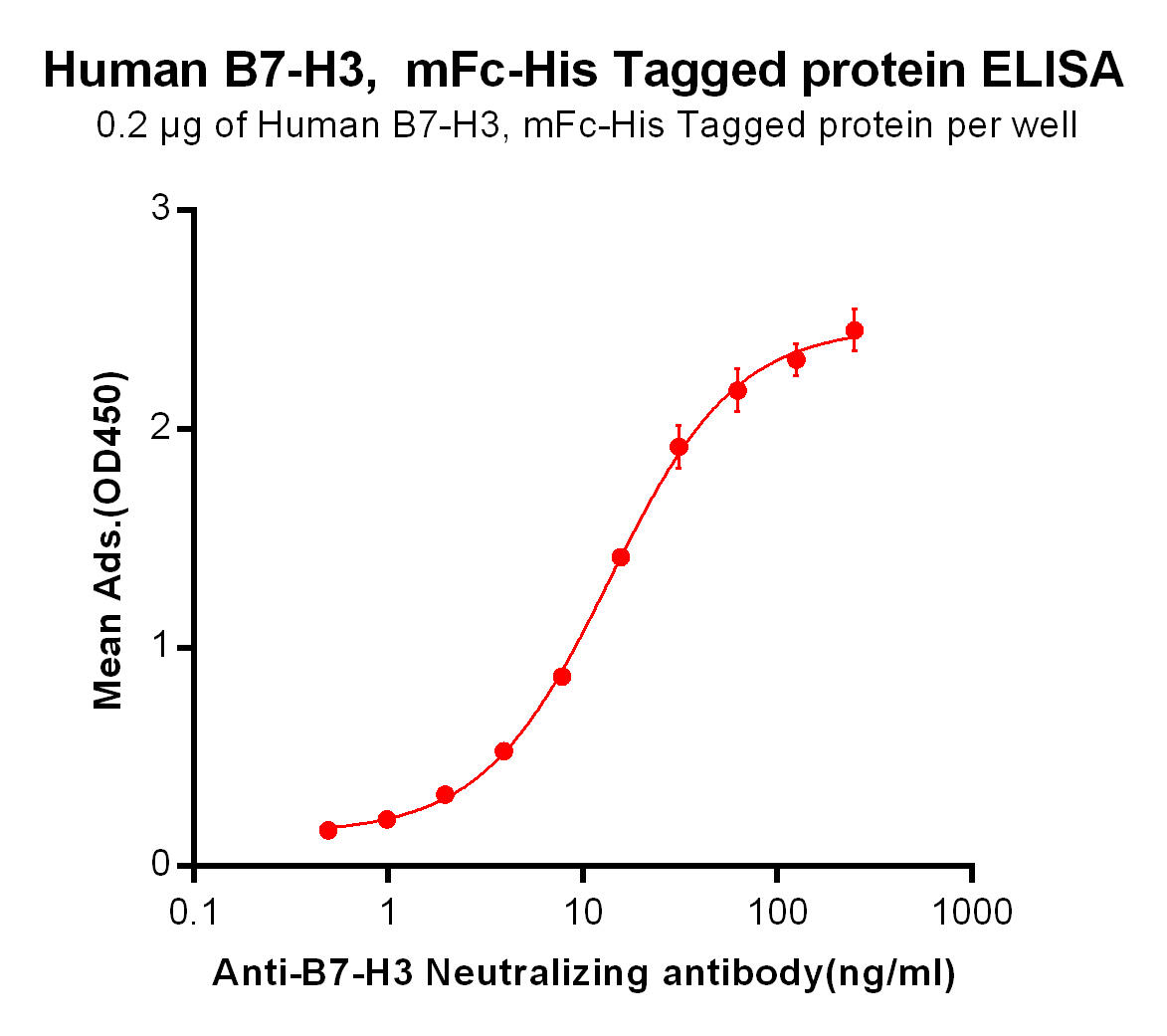Enoblituzumab: Unveiling the Role of Anti-B7-H3 in Cancer Research
Key Facts About Enoblituzumab
What is Enoblituzumab?
Enoblituzumab is a monoclonal antibody targeting the B7-H3 protein, which is expressed on the surface of various cancer cells, including those in prostate cancer, sarcoma, and ovarian cancer.
What is the mechanism of action for Enoblituzumab?
Enoblituzumab works by binding to the B7-H3 protein on tumor cells, blocking its immune evasion mechanisms and enhancing immune system recognition and destruction of the cancer cells.
What are the clinical applications of Enoblituzumab?
Enoblituzumab is primarily being studied in clinical trials for its potential to treat cancers such as prostate cancer, sarcoma, and ovarian cancer. Emerging studies focus on its role in combination therapies.
1.) Understanding Enoblituzumab
Enoblituzumab is a promising immunotherapeutic agent developed to target B7-H3, a protein overexpressed in several cancer types. B7-H3's role in immune evasion makes it a valuable target for therapeutic intervention, particularly in malignancies resistant to conventional treatments.
2.) Mechanism of Action of Enoblituzumab
Enoblituzumab functions by binding to B7-H3 on tumor cells, inhibiting the protein's ability to suppress immune responses. This facilitates an enhanced anti-tumor immune response, making it an attractive option for treating cancers like prostate cancer and sarcoma. Additionally, Enoblituzumab's potential for combination therapies with other immune checkpoint inhibitors, such as pembrolizumab, is a focus of ongoing research.
3.) Clinical Applications of Enoblituzumab
Clinical investigations into Enoblituzumab are exploring its application across various cancer types. Its promising results in prostate cancer, sarcoma, and ovarian cancer, along with its potential use in combination with other immunotherapies, make it a key subject of ongoing research. While FDA approval is still pending, its early-stage clinical trials have shown encouraging results.
Recent studies have shown that Enoblituzumab is safe and demonstrates promise in treating high-risk prostate cancers. Moreover, research is expanding into its use in other cancers, including Ewing sarcoma and ovarian cancer, where B7-H3 expression is significant.
4.) How Enoblituzumab Biosimilar Compares to Enoblituzumab
Our biosimilar product, Enoblituzumab Biosimilar, offers a valuable research tool in the study of anti-B7-H3 therapies. By offering a cost-effective and reliable option, this biosimilar enhances ongoing cancer research efforts without compromising the integrity of scientific findings.
What is a Biosimilar?
A biosimilar is a biologic medical product that is almost identical to an existing FDA-approved reference biologic, but it is developed and marketed once the original product's patent expires. Biosimilars undergo rigorous testing to ensure they match the reference in terms of quality, safety, and efficacy.

| Enoblituzumab (Anti-B7-H3) Biosimilar Antibody | |
|---|---|
| Antibody Type: | Monoclonal Antibody |
| Protein: | B7-H3 |
| Reactivity: | Human |
Comparison
The Enoblituzumab Biosimilar shares the same mechanism of action as the reference product, targeting the B7-H3 protein to enhance immune responses against cancer. It is designed to serve as a more accessible and cost-effective alternative for researchers studying the B7-H3 pathway in cancer treatment.
Benefits
The biosimilar provides significant advantages in research settings by allowing for large-scale testing without the prohibitive costs associated with the reference product. It supports a variety of research applications, particularly in the exploration of cancer immunotherapies.
Research Use Only Disclaimer
The Enoblituzumab Biosimilar is intended for research use only and is not approved for clinical or patient use.
Discover Our Biosimilar Range
At Assay Genie, we specialize in providing high-quality biosimilars for research use! Check out our full biosimilar range to learn more.

Wrote by Shanza Riaz
Recent Posts
-
Tigatuzumab Biosimilar: Harnessing DR5 for Targeted Cancer Therapy
Tigatuzumab is a monoclonal antibody targeting death receptor 5 (DR5), a member of the …17th Dec 2025 -
Alemtuzumab Biosimilar: Advancing CD52-Targeted Therapy
Alemtuzumab is a monoclonal antibody targeting CD52, a glycoprotein highly expressed on …17th Dec 2025 -
Enavatuzumab Biosimilar: Advancing TWEAKR-Targeted Therapy in Cancer
Enavatuzumab is a monoclonal antibody targeting TWEAK receptor (TWEAKR, also known as F …17th Dec 2025




